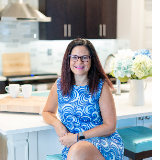Sleep is one of the most important bodily processes that help you function at your best. If you’ve ever had a bad night of sleep or stayed up until the early hours of the morning tossing and turning, you know how poorly it can affect the rest of your day. You might become irritable and cranky or more emotional. You might notice that you are depleted of energy and can’t remember the time of your doctor’s appointment that day. Sleep disorders may be the culprit of your nighttime problems.
Not getting a good night’s rest can clearly affect your mental and physical health and impair your daily functioning. If your normal sleeping patterns are regularly disturbed, you may have developed a sleep disorder. About 70 million people in the U.S. suffer from them.
What exactly is a sleep disorder?
A sleep disorder prevents people from getting restful sleep. Instead, their sleep patterns are disturbed and this can adversely affect the way they function in every-day life.
What causes sleep disorders?
Sleep disorders can be caused by other disorders such as heart or lung disease, nerve disorders, and general pain. Mental illnesses like depression and anxiety can also disturb sleep patterns. Genetics and the medications you take can cause sleep disorders. Unhealthy sleeping habits, irregular sleep schedules, and the use of certain substances (like drugs or alcohol) can be a cause of sleep disorders as well.
What are the most common sleep disorders?
There are over 80 kinds of sleep disorders. Yes, 80! Here’s a breakdown of some of the most common ones.
-
- Insomnia: Insomnia is a disorder where a person has difficulty falling or staying asleep. They experience one or more symptoms like difficulty falling asleep, waking up often and having trouble going back to sleep, waking up too early in the morning, having unrefreshing sleep, or having a daytime problem. Daytime problems include fatigue, sleepiness, or trouble with concentrating or regulating mood. Insomnia can happen occasionally or become a chronic condition (when it occurs for three nights or longer).
-
- Sleep Apnea: Sleep apnea occurs when a person stops breathing for short periods of time (10 seconds or more) during sleep. These breathing interruptions can be potentially dangerous for the person experiencing them. Obstructive sleep apnea (OSA) involves a blocked airway, and central sleep apnea (CSA) is when there is no blocked airway, but instead a disconnect regarding the brain telling the body to breathe.
-
- Narcolepsy: Narcolepsy is a disorder where people exhibit symptoms such as excessive sleepiness, sleep attacks, sleep paralysis, hallucinations, and disrupted nighttime sleep. They can experience uncontrollable episodes of falling asleep at any point during the day. Though incurable, narcolepsy can be managed with treatments and lifestyle changes.
-
- Restless Leg Syndrome: One in ten American adults experience restless leg syndrome, a disorder characterized by an intense, irresistible urge to move your legs accompanied by tingling, prickly sensations while resting. The syndrome usually happens in the evening, making it difficult to fall and stay asleep. Symptoms of this neurologic sensorimotor disorder usually occur during periods of inactivity and are temporarily relieved by movement or applying pressure.
- Parasomnia: Parasomnia is a category of sleep disorders that involves a person acting in unusual ways such as walking or talking during sleep or as a person is falling asleep. Though not as sleep-disrupting as other disorders, parasomnia can affect other people in a household that includes someone with parasomnia.
How are sleep disorders treated?
Sleep disorders can be treated in a variety of ways. Improving sleep habits and routines can help, as well as lifestyle changes like a healthy diet and exercise. Relaxation techniques and acupuncture can help too.
There is a range of therapies that can treat sleep disorders such as cognitive behavioral therapy or bright light therapy. Medications can also help treat some disorders and natural supplements, like melatonin, can help in the short-term. Breathing machines like a CPAP (continuous positive airway pressure) machine can help people with sleep apnea.
Sleep disorders don’t have to ruin your quality of living. With the right treatment plan, you can go back to catching the Zzz’s your body needs.
Find a sleep specialist near me.








